We all have beliefs, and most of us are pretty sure that our beliefs are correct (and that any belief others have that differs from mine is wrong). Beliefs are energy-saving shortcuts that allow us to get to the truth more quickly. We take the input, filter out the parts that we want to ignore, make some simple inferences based on our beliefs, and voilà – the truth! Unfortunately, these shortcuts do not always serve us well.
Where do our beliefs come from? Beliefs generally originate from what we hear – and keep on hearing from others, from the time we are children. College is a time where many people learn new things that challenge their long-held beliefs, but if you attend a conservative Christian university, there is a good chance that you will stay both conservative and Christian (which is why such universities exist).
At some point we’ve all chosen to believe something that is wrong, but changing firmly held beliefs is uncommon and facts alone usually do not persuade us to change. And it is not (always) because we are stupid. It turns out that humans did not evolve to “learn the truth” (we barely care about it), but rather to gain social standing. We are born into (or voluntarily) chose tribes, and we tend to inherit our tribe’s beliefs. Hence, we can hold beliefs that go against our self-interests because the tribe IS our self-interest. Our brains are satisfied as long as we can justify our beliefs to ourselves (and Google will always supply a reason to justify any belief).
When our belief becomes difficult to justify, a common technique we use is to assume that no matter how bad our belief/choice gets, it is always better than the alternative. My belief/choice (A) might be going poorly, but the alternative (B) is always worse (by definition). Hitler may have been bad, but just imagine how much worse it would have been had Mother Teresa been running Germany! This is why many arguments turn into whataboutisms filled with false equivalencies (my guy may have murdered a million people, but what about the time that your guy farted in public!)
As our tribe’s stances change on different topics, we often find our own beliefs changing with them. For example, before the pandemic, we had many fewer anti-vaxxers and they were spread across the political spectrum. During the pandemic, many changed their stance simply because their tribe took a strong position.
Here are some recent examples of this behavior:
Example 1: Texas woman whose child died of the measles
A 6-year-old Texas child died of measles a few weeks ago. Her parents were part of a Mennonite community who were very anti-vax. Because of their beliefs, they made a choice to not vaccinate. How do they feel about that choice now? From a recent interview:
“We would absolutely not take the MMR,” the mother said in English, referring to the measles-mumps-rubella vaccination children typically receive before attending school. She said her stance on vaccination has not changed after her daughter’s death.
“The measles wasn’t that bad. They got over it pretty quickly,” the mother said of her other four surviving children who were treated with castor oil and inhaled steroids and recovered.
To recap: All 5 of their children got measles and only one died, so they believe that clearly the measles isn’t that bad. A is always better than B. So as bad as it is to lose your 6-year-old child, at least they didn’t get vaccinated (which would have somehow been much worse). They will stick with their tribe’s beliefs and bend reality around them.
Example 2: MAGAs changing concerns on the economy
I have heard from many people that Biden destroyed our economy and caused the stock market to tank. While it is very easy to Google the actual numbers, surprising few do so.
Here is the stock market:
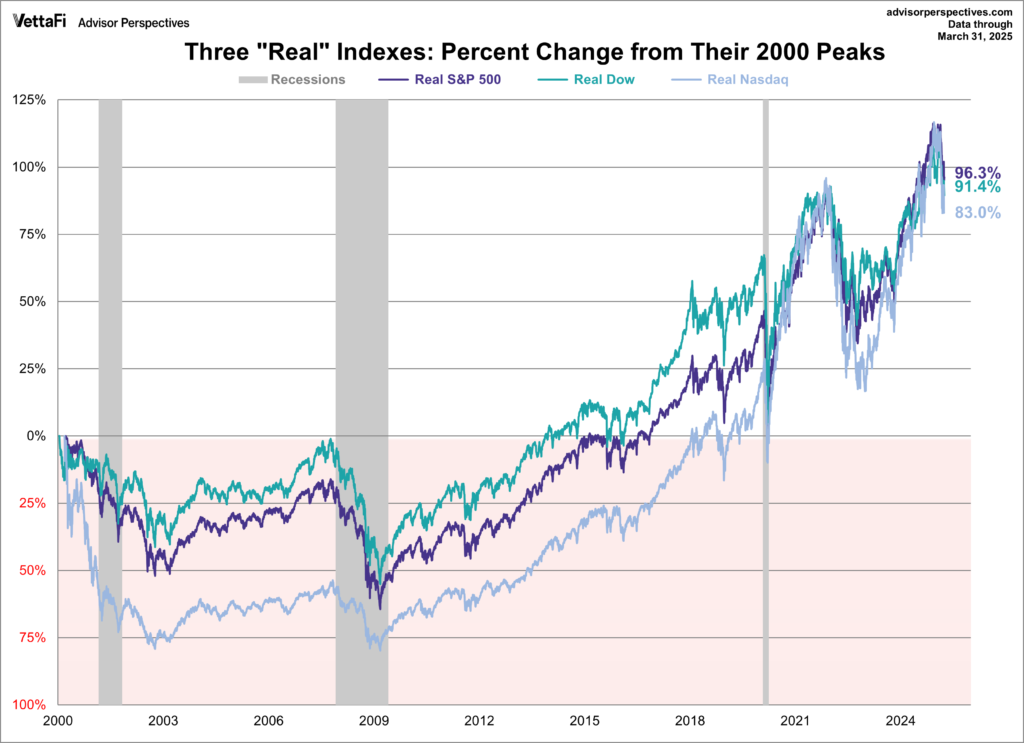
Here is the inflation adjusted GDP:
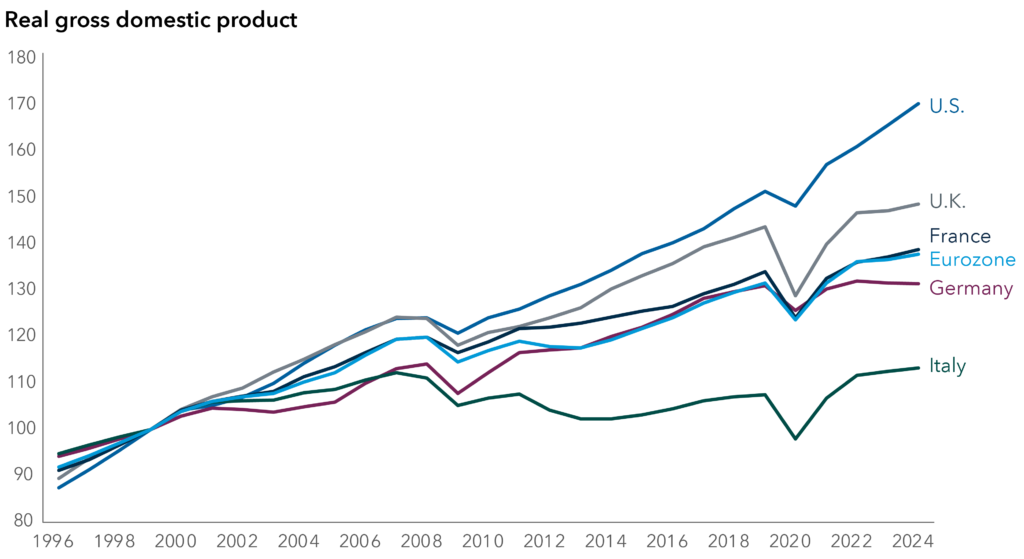
Source: AMECO database. Based on an index of growth (1999= 100). Data as of November 31, 2024
Here is unemployment:
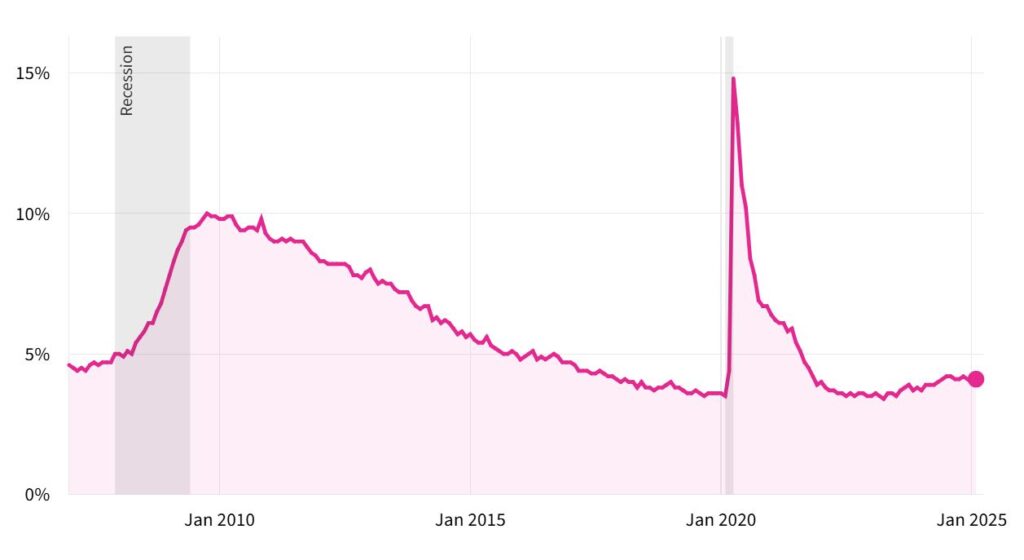
I am NOT saying that the Biden years were perfect (the numbers show that they were not), but it is also clear that the sky wasn’t falling (especially when compared to other countries).
Trump won re-election largely based on promises to improve all these numbers (and I can certainly understand why people would want to see improvement). In the past few days, Trump’ tariffs have taken effect and the stock market now looks like this:
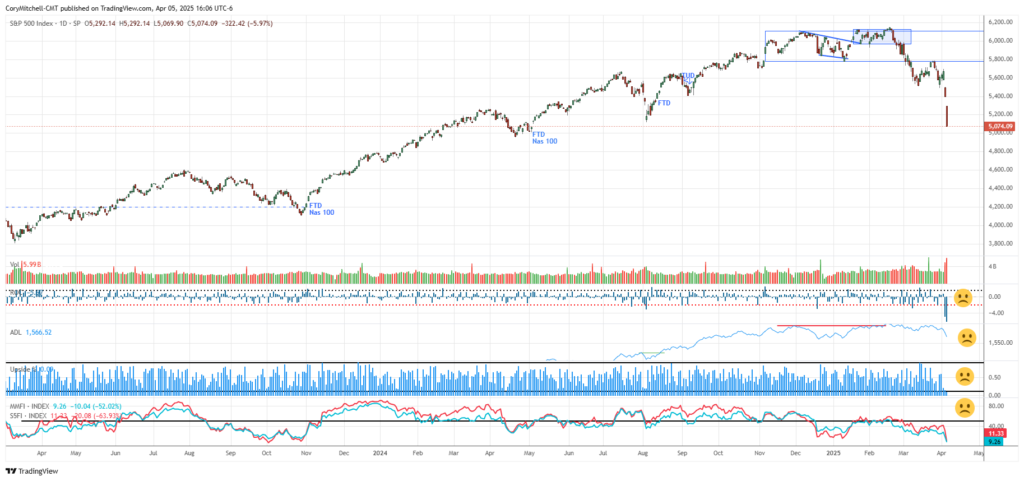
It is too soon to say how all of this will play out, but most of MAGA’s support has not wavered yet. Two months ago, they claimed that the economy was their number one issue (and it still would be if it were performing well). Today, many act like they are fine with the idea of the economy tanking. Most think that no matter how bad things get, it would somehow be worse had Kamala Harris won the election.

Example 3: A family member
We have a family member who is from Canada, but has lived in the US since her marriage. She finally applied (and received) US citizenship in her late 50s. She has become an avid Trump supporter, and claims that while she really dislikes his character, she loves everything that he does (especially his heavy-handed immigration policies).
She used to believe that Russia attacked Ukraine, until she heard a podcast in which a “historian” explained everything. Now she believes that Russia is an innocent victim in the war – that Ukraine and the US forced Russia into the war. And while the war is mostly Biden’s fault, she doesn’t think the US should help Ukraine at all.
She used to be very pro Canadian, but sent me an article two days ago explaining how the tensions between the US and Canada are purely Canada’s fault and that at this point they really should just secede to the US and become the 51st State.
I cannot wait to see what she reads or hears within the next few days that convinces her that we’d be immoral if we did NOT invade Greenland (and start a war against NATO).
Obviously, she does not speak for anybody but herself, but it does illustrate how badly our brains search for justification of our beliefs. We saw the Russia attack on Ukraine happen in real-time – the buildup, the warnings, the assurances that it would never happen, then the actual invasion, the relentless bombing of civilian targets, etc. We absolutely know what happened! But Donald Trump said Ukraine started the war and if you love Donald Trump, your brain will look for any reason to justify agreeing with him. All it takes is a single podcast by a random “historian” to provide this justification.
Why are we like this, and is there any hope?
As individuals, we have the power to change our tribes and our long-held beliefs, but this happens rarely due to:
- Ego. In a country where 8% of the population believe that they could beat a gorilla, elephant, or lion in a fight, we clearly overestimate our abilities (both physical and intellectual). And admitting that we were wrong about a firmly held belief is hard to do – especially if it means that we can be wrong about other things. The Dunning-Kruger effect is real.
- Confirmation bias. If we already believe that A is better than B, we tend to discount all information to the contrary. And when the data becomes incontrovertible, we attack the source of the data.
- Sunk-cost fallacy. We have already invested so much in A and we don’t want that investment to be wasted.
Presenting facts and arguing opinions is like pouring water on a gas fire – it doesn’t quench the flames, but merely causes the fire to spread and mutate.
When people do change a firmly held belief, it is often for one the following reasons:
- Self-interest. Sometimes a belief becomes so personally expensive to hold, that they are forced to change it. For example, if a MAGA person were to sour on Trump, it will likely be due to a severe personal financial crisis rather than a moral awakening. But as evidenced by the Texas family, even great personal cost may not always be sufficient.
- A major event occurs that shakes the foundation of their beliefs. These are rare, but can happen.
- Sometimes people will change on their own through self-reflection, often aided by the gentle influence of a friend.
As I write this, I find it very disheartening as my country has become very polarized and a lot of people are choosing to believe some very damaging stuff (and the damaging stuff has only started to cause the expected amount of damage). I have personally changed my own beliefs radically over the past 10 years, but these were largely triggered by foundation shaking events (that not everybody will have).
Is there a technique that effectively causes people to reevaluate their beliefs? I know one person who has mastered such a technique – Daryl Davis, who I met two years ago.
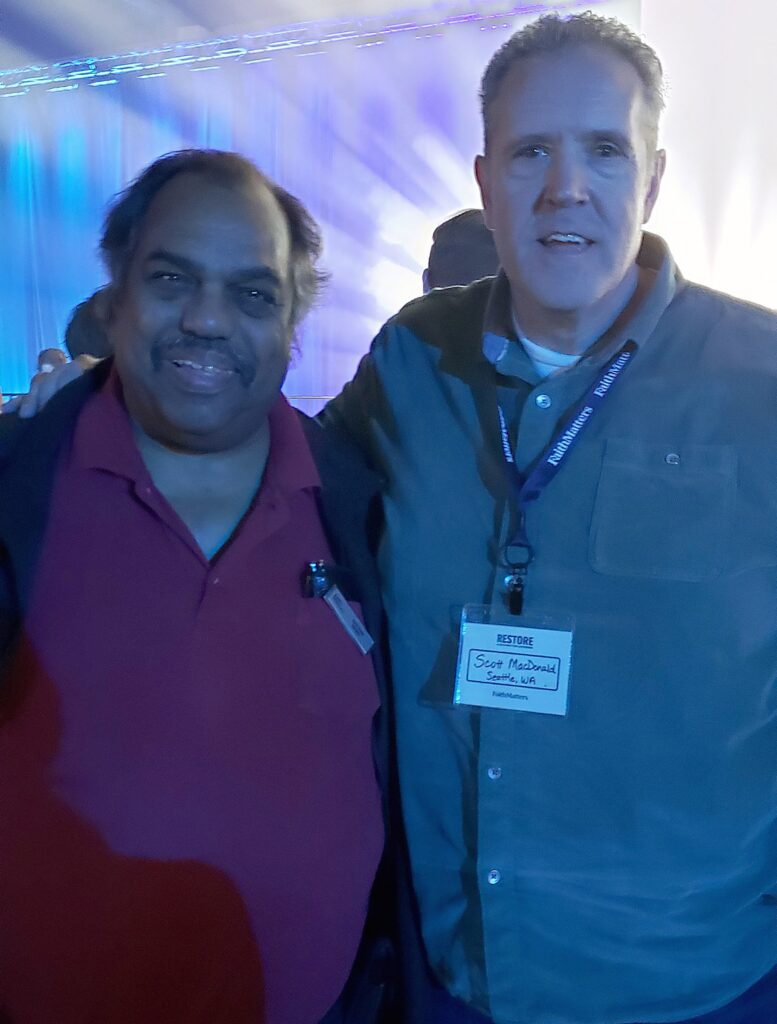
As a black man, he believed that racists would not hate him if they only got to know him better. So, he befriended several members of the Ku Klux Klan. He attended their rallies and was even the best man at the wedding of the imperial wizard (the national leader of the KKK). Over time, several klan members realized that racism did not make sense and left the klan. When they did, they gifted their robes to Daryl Davis, who today has over 230 robes (including those of the former imperial wizard). He also plays a very mean piano!
His technique is simple, but unfortunately it does not scale very well. It requires so much patience and ability that I have been unable to make effective use of it.

